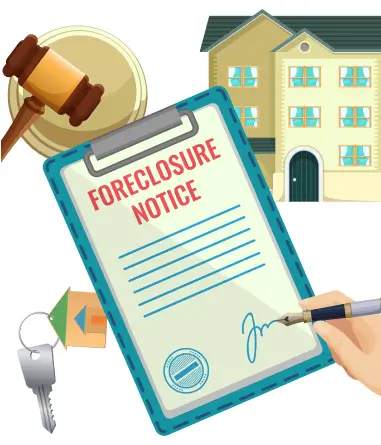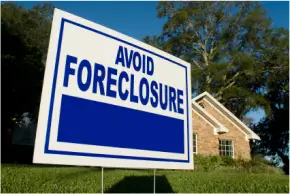Foreclosure Attorneys in Utah
What is Foreclosure?
Foreclosure is the process whereby a mortgage holder “repossesses” the collateral for their loan. If you borrowed money to purchase your home or took out a second mortgage, you gave the lender a security interest in your house or land. This became the collateral for the loan. When the loan goes into default (usually by lack of payment) the lender forecloses, or eliminates your ownership interest in the property. They do this so that they can sell the property foreclosure to someone else and recover some or all of what is owed on the loan.

Judicial vs Non-Judicial Foreclosure
A judicial foreclosure is when the lender files a lawsuit and involves the courts, also known as a “Sheriff Sale.” In contrast, a non-judicial foreclosure saves time by carrying on the process outside of court. In either process, the end result is a foreclosure sale of the property.
Rulon T. Burton Can Help
In Utah, most foreclosures are non-judicial, a process our foreclosure attorneys are familiar with. Whether you’re a lender or a borrower (homeowner), we can help you through the steps of a foreclosure.
Understanding Utah foreclosure law
Generally, to foreclose on a house or property, the creditor must state that there is some type of default.
How Many Mortgage Payments Can I Miss Before Foreclosure?
The most common type of default is being behind on loan payments. Typically, lenders don’t begin the foreclosure process until four consecutive mortgage payments have been missed. However, don’t use that generalization as leeway to miss payments and hope to avoid foreclosure. It’s best to consult with debt consolidators or financial advisors if you’re having trouble with your payments to avoid even getting close to defaulting on your mortgage

What Happens When I Default on My Mortgage?
Once the mortgage or loan is in default, the creditor records a Notice of Default with the county recorder. A copy of the Notice of Default is sent to the property owner (you, presumably) by registered mail, return receipt requested (that green card the letter carrier asks you to sign).
If you’re the owner of the property who’s been sent the Notice of Default, you now have 90 days to cure the default. If the default is not cured within the 90-day redemption period, the lender sets a date to sell the property. After setting the sale date, the creditor posts a notice of sale on the property and advertises the property once per week for at least 3 weeks. On the sale date, a representative for the lender sells the property on the courthouse steps (yes, really!).
How we can help
Now for some good news. Generally, a Chapter 7 or 13 bankruptcy can STOP THE FORECLOSURE at any time during the process. As long as the bankruptcy is filed before the sale of the property, the foreclosure cannot proceed without permission from the bankruptcy court. Further, Chapter 13 bankruptcy will give you time to bring your mortgage payments current while making your regular, ongoing loan payments. The bottom line is that Chapter 13 can help you keep your home, even if the lender is foreclosing.
A Utah foreclosure attorney team you can trust
Our team of legal professionals knows how to help you during this difficult time. Experience, a thorough knowledge of Utah foreclosure law, and the ability to really listen are what make us the right team to depend on. Call us today to make an appointment; your initial consultation is FREE.
We’re here to review your situation in detail and show you how a Chapter 13 bankruptcy can help you keep your home.